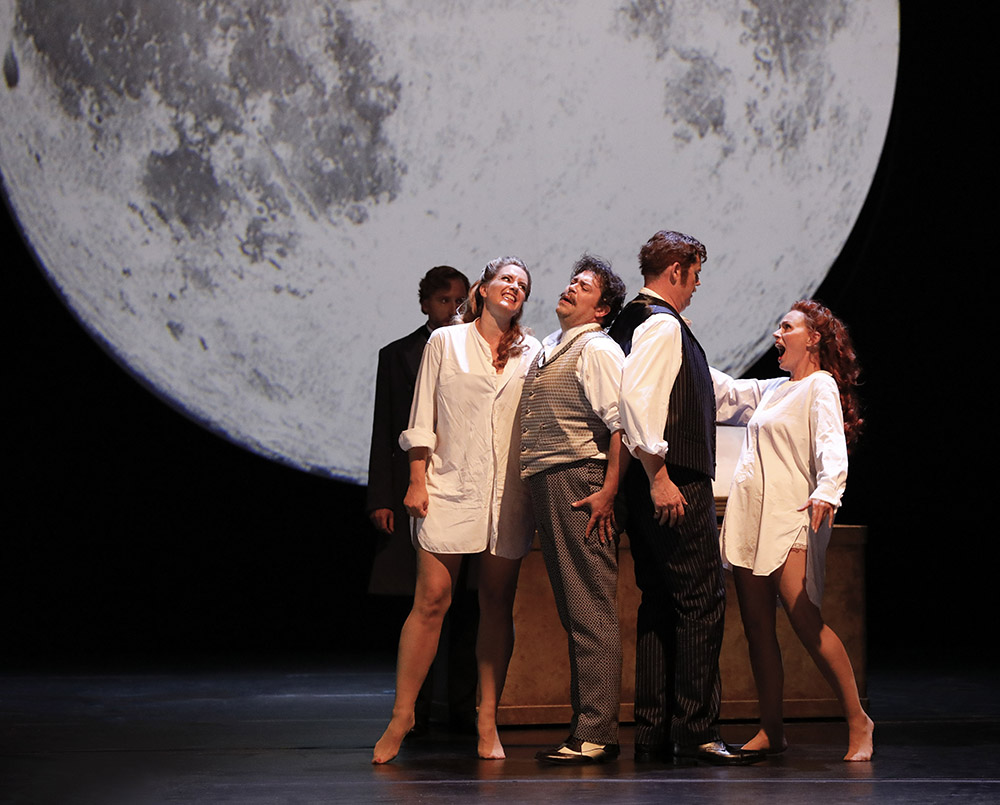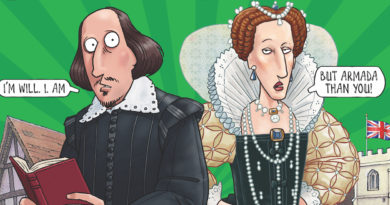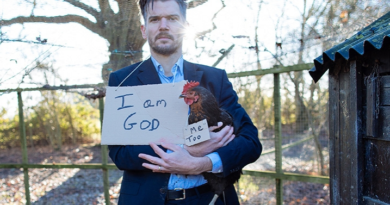Bristol Hippodrome theatre review: The Merchant of Venice
Bristol Hippodrome theatre review: The Merchant of Venice
Vivienne Kennedy reviews The Merchant of Venice, the first of three Shakespeare inspired pieces being performed at Bristol Hippodrome by Welsh National Opera this week.
Welsh National Opera’s orchestra take up the auditorium space where you’d normally find rows A to F and there’s always something very special about walking in to find the musicians already in their seats, tuning up and chatting to each other. There always seems to be a lot of laughter; you sense many shared jokes among this group that work and travel together.
André Tchaikowsky began writing The Merchant of Venice in 1968 after meeting theatre director John O’Brien who wrote the libretto, sticking closely to the original and generally using Shakespeare’s own words. It wasn’t finished until 1982 and, having been turned down by English National Opera, Tchaikowsky didn’t ever see it performed as he died just three months after receiving their letter of rejection.
It was his dying wish for the opera to be staged but it took until 2013 when WNO Artistic Director David Poutney, who had been present at a playthrough of the first two acts for ENO in 1981, premiered it at the Bregenz Festival. This production gave the opera its UK premiere when it opened at the Wales Millennium Centre on 16 September 2016.
Over three acts, and an epilogue, The Merchant of Venice begins when young Venetian Bassanio asks to borrow the money needed to woo wealthy heiress Portia from his friend Antonio, a merchant. As Antonio’s money is all tied up with his shipping interests, and his ships are all at sea, he, in turn, borrows the money from Shylock, a Jew; half-joking when he agrees to forfeit a pound of flesh should the loan of 3,000 ducats not be repaid at the specified time.
Meanwhile, Shylock’s daughter Jessica, who has been kept locked up at home since the death of her mother, has grown to resent her father’s control over her life. She agrees to escape with her secret lover, Lorenzo, converting to Christianity in order to marry him. He and his friends revel in the rescue and also steal Shylock’s riches. When he discovers his house robbed and his daughter gone, he swears revenge.
In Act Two Bassanio succeeds in winning the hand of Portia, a process which involves choosing between three caskets, one gold, one silver and one lead, to find the one containing her portrait – the princes of Aragon and Morocco went before him and failed but provided several moments of almost slapstick comedy with their endeavours.
Bassanio’s friend Gratiano also falls in love, with Portia’s companion Nerissa, but both men have to return to Venice after receiving news that Antonio’s fleet of ships has been lost – his fortune has gone and therefore he can’t repay his debt to Shylock, who is demanding his pound of flesh.
Act Three, set in the courtroom, was my favourite, containing a real mix of drama and comedy. The Duke of Venice fails to dissuade Shylock from pursuing his claim but, just in the nick of time, a young lawyer and his clerk arrive (actually Portia and Nerissa in disguise) with a new argument to support the case for leniency.
They point out that although his bond allows him a pound of Antonio’s flesh, it doesn’t allow for a single drop of blood to be spilled. Furthermore, as he has threatened a Christian life, he must be executed and the only way he can save himself is to beg for mercy, give up all his property, and convert to Christianity.
Still in disguise, the only payment asked for by Portia and Nerissa is the two rings they originally gave their suitors as wedding tokens. Bassanio and Gratiano oblige.
Following a short but enjoyable entr’acte, which gave the orchestra their moment in the spotlight, the opera concludes with the Epilogue, in which Jessica and Lorenzo delight in their new-found love and Portia and Nerissa tease their men by demanding to know where their rings have gone before revealing the truth.
It took me a while to warm to this opera but by the second act I was really enjoying it, particularly the blend of darkness and light, both on stage and in the music.
Among many strong performances, the stand-outs for me were Lester Lynch as Shylock; Mark Le Brocq and David Stout as Bassanio and Gratiano; Sarah Castle and Verena Gunz as Portia and Nerissa; and Juliusz Kubiak and Wade Lewin as the princes of Aragon and Morocco. Praise also to conductor Lionel Friend and designer Ashley Martin-Davis, who have made the production sound and look fantastic.
Tonight I’ll return to Bristol Hippodrome for Verdi’s Macbeth (I overheard one opera buff in last night’s audience tell her friend that the witches are pretty special) and I’ll be there again tomorrow for the company’s take on the musical theatre classic Kiss Me, Kate, which is of course based on Shakespeare’s The Taming of the Shrew.
Welsh National Opera will return to Bristol Hippodrome in March with their spring season, which is entitled Love’s Poisoned Chalice. They will perform La Bohème and Madam Butterfly, both by Puccini, as well as Frank Martin’s Le Vin herbé, as usual mixing the familiar with something a bit more off the beaten track.
I will always recommend seeing one of WNO’s shows; the quality is fantastic and even if you think you don’t like opera, you might surprise yourself. This time I have another recommendation, Google André Tchaikowsky, his story is fascinating and would make an excellent play, opera or film in its own right.
For further information and to book online visit www.atgtickets.com
Image: Verena Gunz (Nerissa), David Stout (Gratiano), Bruce Sledge (Lorenzo) and Sarah Castle (Portia)- WNO’s the Merchant of Venice- photo credit Johan Persson





